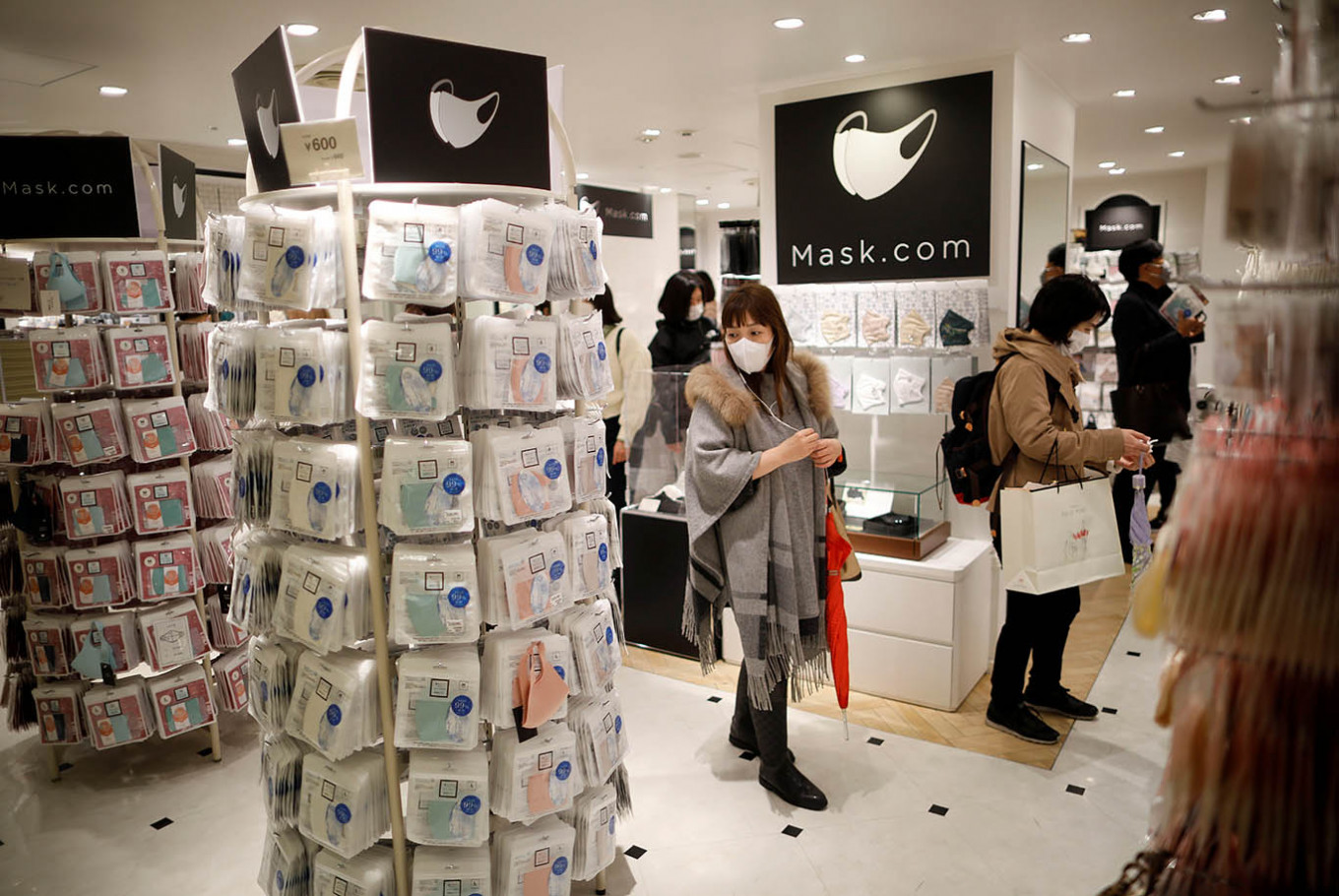Popular Reads
Top Results
Can't find what you're looking for?
View all search resultsPopular Reads
Top Results
Can't find what you're looking for?
View all search resultsJapan's capital sees prices fall most in over eight years as COVID-19 pain persists
The core consumer price index (CPI) for Japan’s capital, which includes oil products but excludes fresh food prices, fell 0.7 percent in November from a year earlier.
Change text size
Gift Premium Articles
to Anyone
C
ore consumer prices in Tokyo suffered their biggest annual drop in more than eight years, data showed on Friday, an indication the hit to consumption from the coronavirus crisis continued to heap deflationary pressure on the economy.
The data, which is considered a leading indicator of nationwide price trends, reinforces market expectations that inflation will remain distant from the Bank of Japan’s 2 percent target for the foreseeable future.
“Consumer prices will continue to hover on a weak note as any economic recovery will be moderate,” said Dai-ichi Life Research Institute, which expects nationwide core consumer prices to fall 0.5 percent in the fiscal year ending March 2021.
The core consumer price index (CPI) for Japan’s capital, which includes oil products but excludes fresh food prices, fell 0.7 percent in November from a year earlier, government data showed, matching a median market forecast.
It followed a 0.5 percent drop in October and marked the biggest annual drop since May 2012, underscoring the challenge policymakers face in battling headwinds to growth from COVID-19.
The slump in fuel costs and the impact of a government campaign offering discounts to domestic travel weighed on Tokyo consumer prices, the data showed.
Japan’s economy expanded in July-September from a record post-war slump in the second quarter, when lockdown measures to prevent the spread of the virus cooled consumption and paralyzed business activity.
Analysts, however, expect any recovery to be modest with a resurgence in global and domestic infections clouding the outlook, keeping pressure on policymakers to maintain or even ramp up stimulus.










